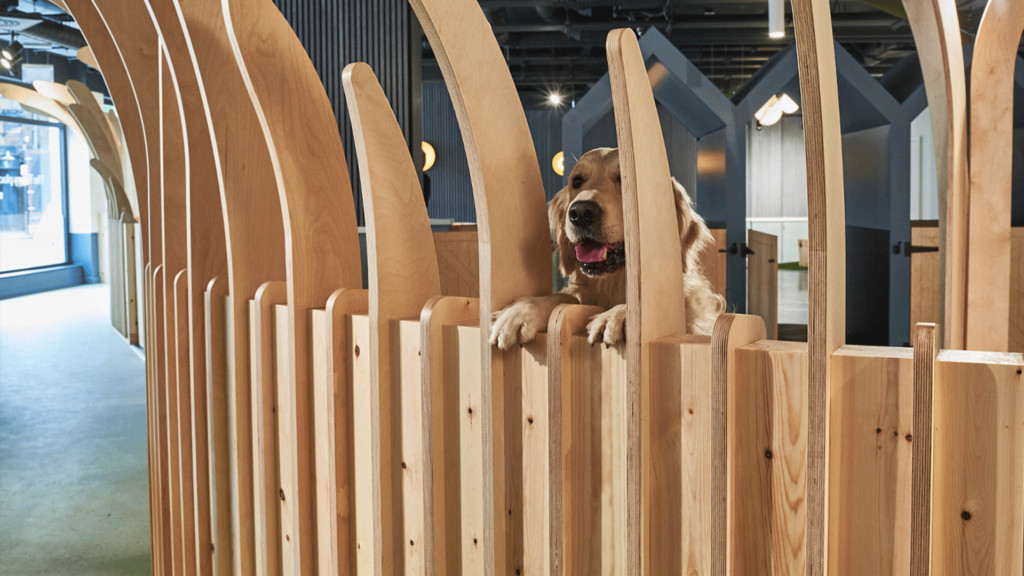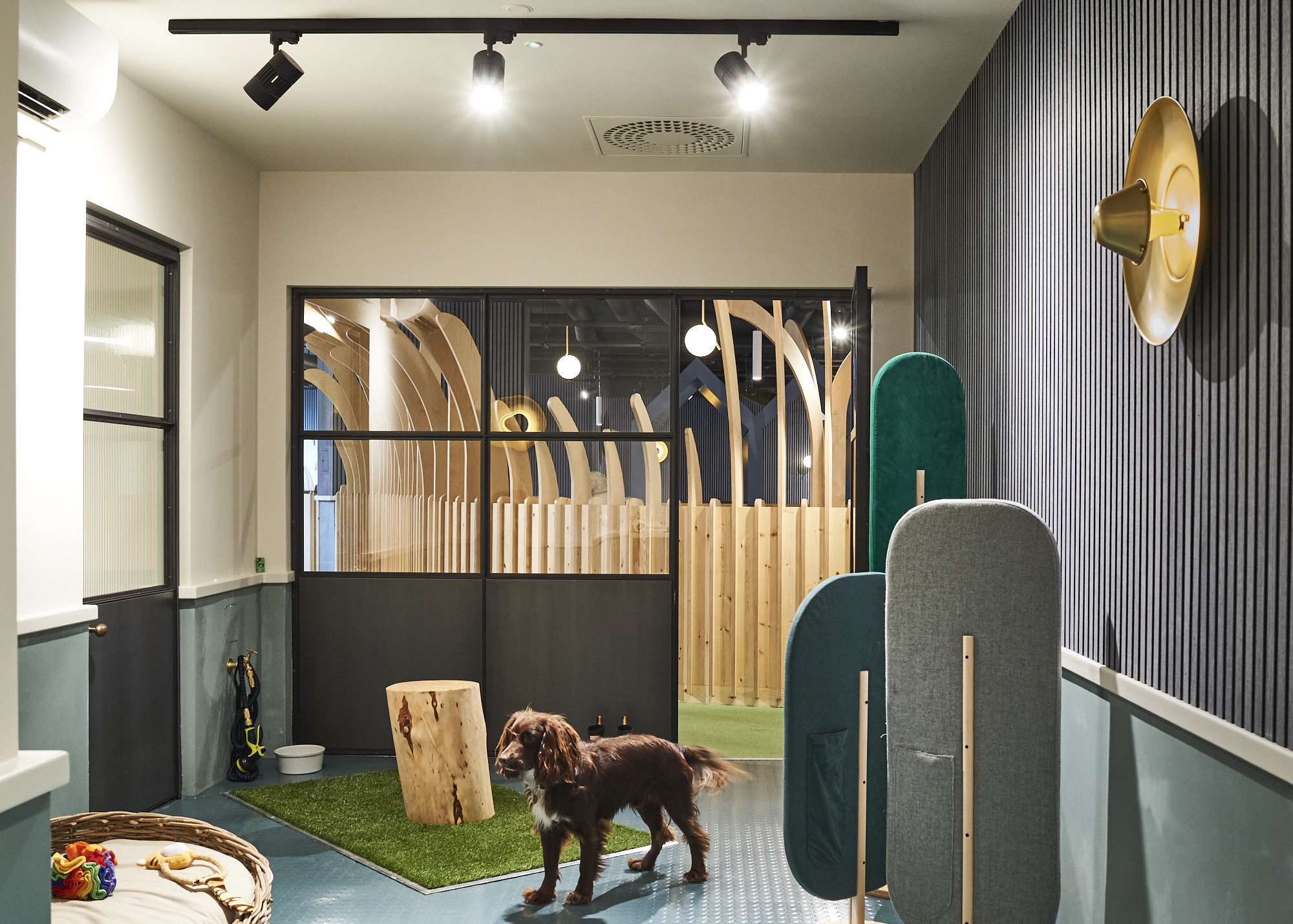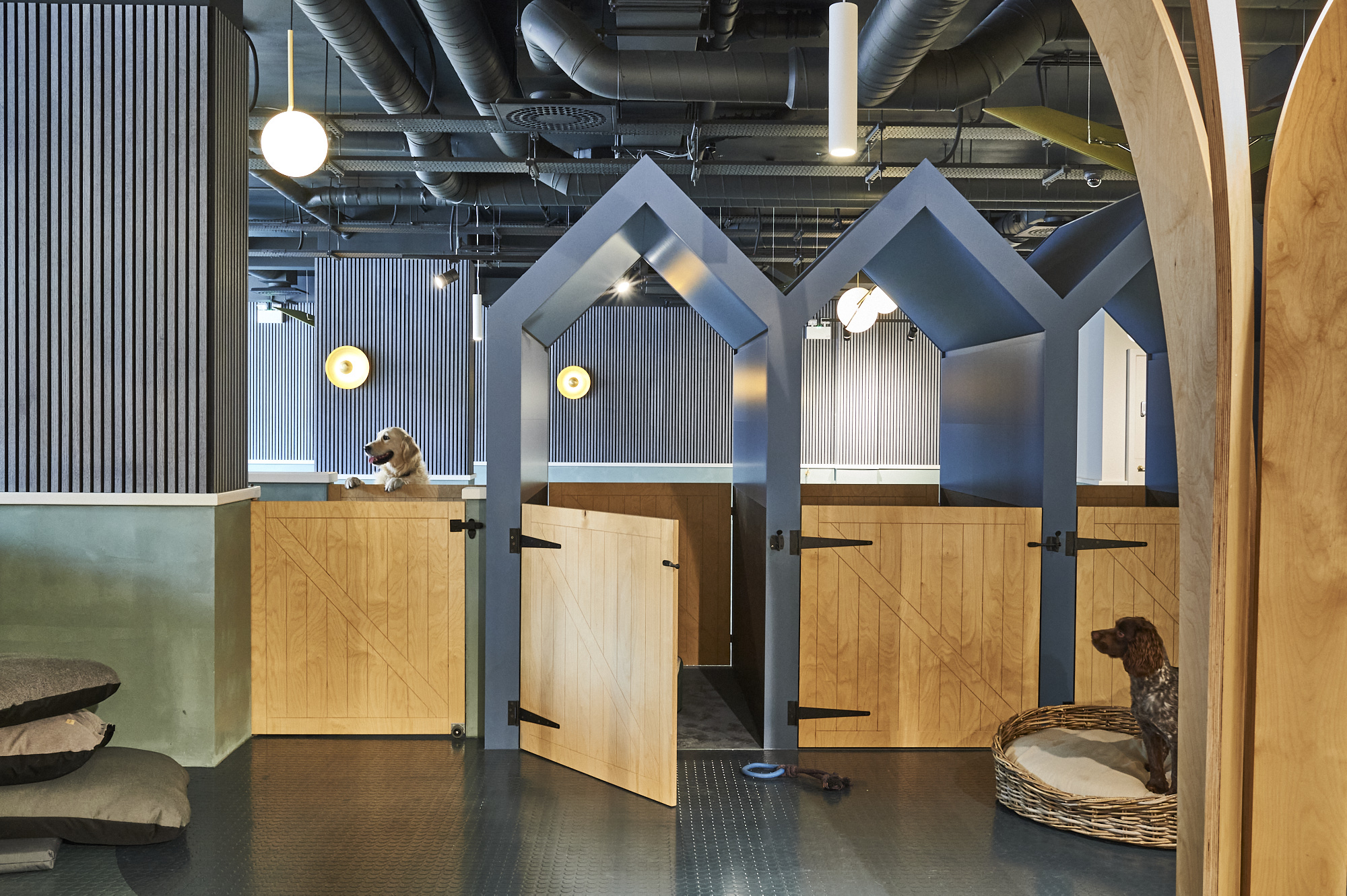Did you know, WagWorks is (much) more than just a pretty space?
Everything we do is guided by science and based on extensive research into dog behaviour and communication. Our clubs are created to be entirely dog-centric, from the design of the environment, to every material, surface and colour used to bring it to life, to the philosophies we employ.
So, what is some of the science and research behind the creation of WagWorks?
Approaching in a curve is polite & friendly in dog language.
In her book On Talking Terms with Dogs, international dog trainer, Turid Rugaas states that a dog’s heart rate goes down when you walk in a curve towards them. It’s a polite and friendly greeting showing you are not confrontational. That’s why the flow of our clubs are designed as a one-way system and built on a curve to mirror dog body language.

Foraging & nosework activity is hugely beneficial to dogs.
It has been scientifically-proven that sniffing reduces a dog’s heart rate and helps them to relax. A study called Let me sniff! Nosework induces positive judgment bias in pet dogs, states that:
‘Allowing dogs to spend more time using their olfaction through a regular nosework activity makes them more optimistic. By allowing dogs more “foraging” time, their welfare is improved.’
This is exactly why we created our Scent Den, which is entirely dedicated to enrichment and designed to boost dogs’ mental stimulation, keeping noses sniffing and tails wagging. From old wellington boots, to snuffle mats and puzzles, we’ve got something interesting for every dog and it evolves and changes week-to-week ensuring the next visit is always as enriching and exciting as the last.

Dog health & happiness isn’t all about lots of physical exercise.
Studies by canine behaviour consultant, Sindhoor Pangal, looked at free-ranging street dogs and found that dogs are much less active day to day than we might think (60% sleeping, 20% observing, 12% smelling, 8% exercising and small periods toileting, chewing, licking etc).
She said:
‘The big takeaway for me is that dogs chose not to be very active. They seem to need far less movement than I had imagined. When we think of street dogs, we conjure up images of them leading highly active lives involving lots of car chasing, playing, fighting, and generally strutting around. On the contrary, they seemed to prefer one activity over all else – sleeping….Resting, foraging, and standing are the next most prominent activities.’
‘I have started trying this relaxed approach with my dogs and with my clients’ dogs. We bring down the “physical exercise” component of the walks, slow walks down to as slow as possible, focusing a lot on aimless meandering that involves a lot of sniffing. We also have cut out all intensely active games like fetch, running, and Frisbee. This approach, combined with other lifestyle changes, seems to be calming dogs down faster than I thought it would.’
So, we know dog health and happiness is not all about intense physical exercise and predominantly active lifestyles. Dogs choose to be inactive for the majority of the time if left to their own devices.
We believe that a happy dog is one who is allowed to choose which behaviours they’d like to act upon. That’s why our clubs and services are carefully designed to cover all aspects of a dog’s ethogram, including our Scent Den for enrichment, smelling, chewing and licking, appropriate groupings for healthy socialisation and play, and two designated rest times throughout the day. Our aim is for dogs to go home happy and balanced rather than over-stimulated and exhausted.

Benefit from the highest level of care and our dog-loving community by becoming a WagWorks member! Apply here today
